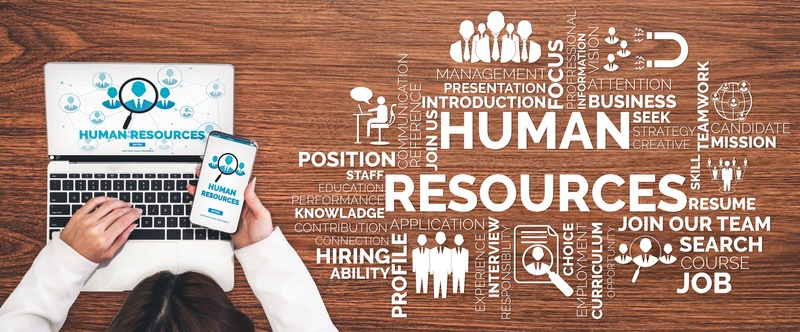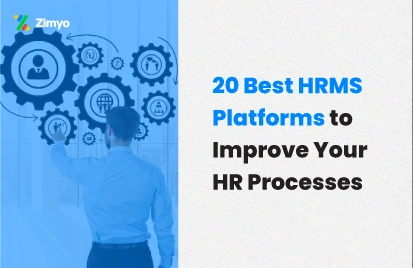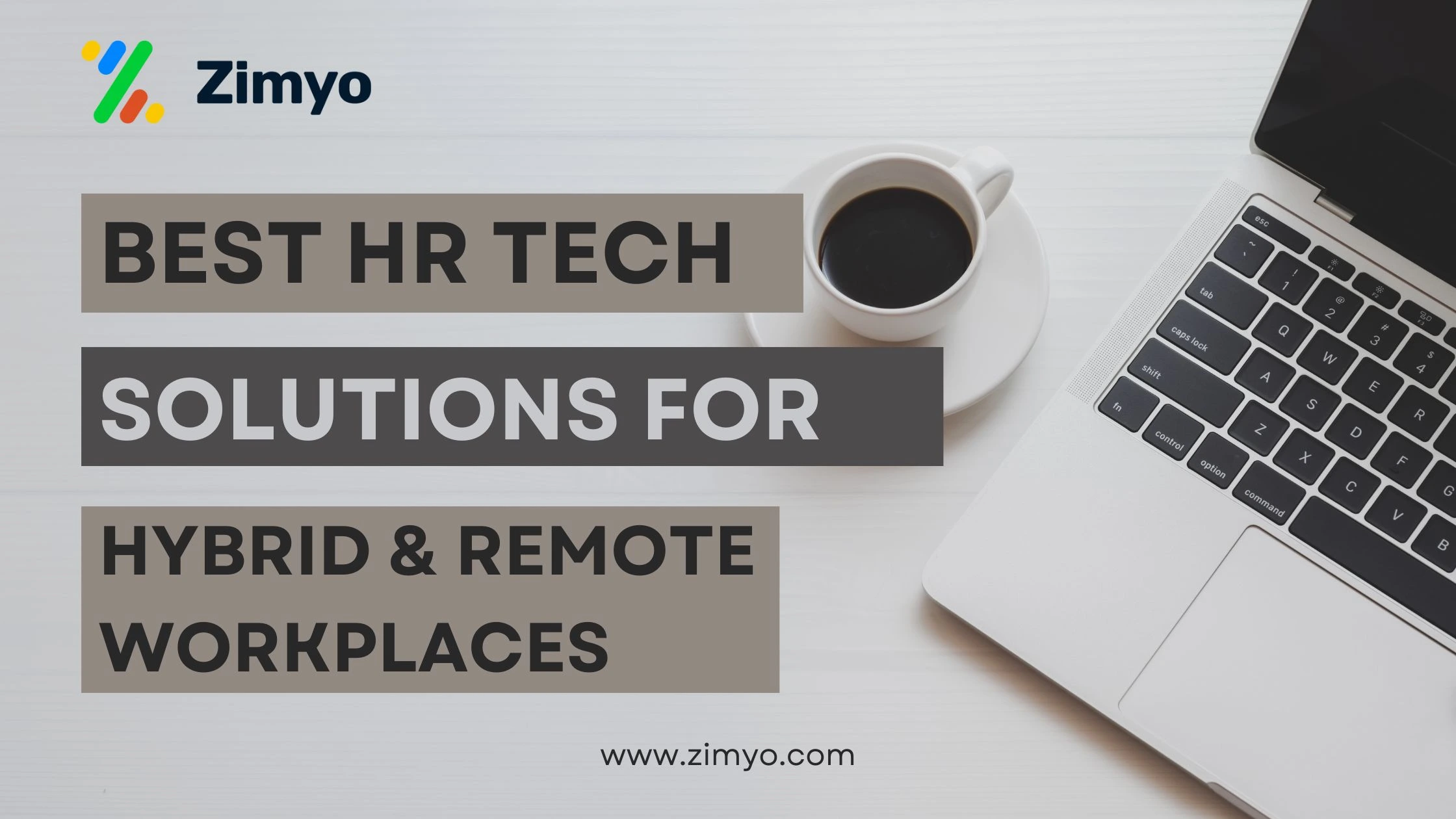What is Human Resource Management?

The strategic approach to managing an organization’s most valuable assets – the employees- is called Human Resource Management. Managing the entire workforce, their selection, recruitment, training and development, performance management, employee well-being, etc.
The fundamental goal of human resource management is to draw in the employees, increase retention, motivation, and engagement in the workplace, and ensure the overall well-being of the workforce. Practicing quality human resource management additionally helps build a positive work environment and benefits by complying with the laws and regulations.
HRM in today’s day is a vital function for every organization, no matter what industry or size. The growth and profitability of an organization rely heavily on the shoulders of HRM. Recruiting the right skillset people, for the right job role, at the right time.
What is the scope of Human Resource Management?

The scope of Human Resource Management is broad and encompasses all aspects of managing an organization’s workforce. The critical areas of focus within HRM include:
1. Recruitment
HRM takes responsibility for identifying staffing needs, developing job descriptions, and sourcing and selecting the perfect candidates that align with the open positions.
2. Training & Development
Human resources ensure employees have the proper training and development to understand and enhance their skills and knowledge to perform their roles effectively.
3. Performance Management
HRM establishes performance standards, evaluates employees’ performance, and provides feedback and training to assist the employees in reaching their potential.
4. Compensation & Benefits
HRM develops and manages compensation and guides on how to build employee benefits programs that attract and retain talented employees.
5. Employee Relations
Human resources also manage employee relations, including workplace conflicts, compliance with laws and regulations, and promoting a positive organizational culture.
6. Health & Safety
Human resource management ensures employees work in a safe and healthy environment and comply with every health and safety regulation.
7. HR Analytics
HRM collects and analyzes data about an employee and their performance, turnover, and other metrics to help in decision-making and to drive toward improvement.
To conclude this part, the scope of human resource management is to support the organization’s overall business strategy by developing and managing a skilled, motivated, and engaged workforce that drives the organization toward the path of success.
Improve Performance and Profitability!
What are the functions of Human Resource Management?

Human Resource Management (HRM) is an assistant in managing the employees of an organization. The sole focus is maximizing employees’ productivity and efficiency while working on their well-being and development. Some primary functions of HRM include:
1. Recruitment & Selection
HRM is responsible for attracting and selecting qualified candidates for job vacancies in an organization. This involves identifying job requirements, sourcing candidates, screening resumes, conducting interviews, and selecting the best candidates.
2. Training & Development
HRM is responsible for offering training and development opportunities to employees to enhance their skills and knowledge, which can help them perform better on the job and advance in their careers.
3. Performance Management
HRM is responsible for monitoring, tracking, and evaluating the performance of employees to ensure that they meet the organization’s standards and expectations. This involves setting performance goals, providing feedback, and conducting performance evaluations.
4. Compensation & Benefits
HRM manages employee compensation and benefits, including salaries, bonuses, health insurance, retirement plans, and other fringe benefits.
5. Employee Engagement
HRM maintains positive relationships between employees and the organization. This involves addressing employee concerns and grievances, providing support, and resolving conflicts.
6. Compliance
HRM ensures that the organization complies with labor laws and regulations, including anti-discrimination laws, workplace safety regulations, and other legal requirements.
7. Strategic HR Management
This involves aligning HR strategy with the organization’s overall business strategy.
8. Talent Management
This involves attracting, developing, and retaining top talent in the organization.
9. HR Operations
This involves managing HR operations, such as HR policies, compliance, and legal requirements.
10. Diversity, Equity, and Inclusion (DEI)
This involves promoting a diverse and inclusive workplace, ensuring equal opportunities for all employees, and addressing discrimination and bias.
These interdependent functions are critical in creating a high-performance culture, driving employee engagement, and supporting business growth and sustainability.
These functions support organizational goals, ensure compliance with legal and ethical standards, and promote employee engagement and satisfaction. Overall, the functions of Human Resource Management are essential for creating a productive and supportive work environment that fosters employee satisfaction and organizational success.
The cutting-edge HRMS of today!
What is Internal and External Human Resource Management?

Internal human resource management refers to the practices, policies, and procedures an organization leverages to manage its workforce.
This includes functions such as recruitment, training and development, compensation and benefits, performance management, employee engagement, time and attendance, and other tasks that are developed to enhance the productivity and well-being of employees and an organization.
On the flip side, external human resource management refers to the management of relationships with people outside of the company, such as job seekers, labor unions, regulatory agencies, and other stakeholders.
This includes activities such as recruitment, sourcing, selection, and staffing of employees, as well as being in compliance with the laws and regulations of employment.
To conclude, internal and external human resource management are vital aspects of managing an organization’s workforce effectively, and they work hand in hand to ensure that the organization recruits the right employees for the right job roles to achieve its goals and objectives.
Who is a Human Resource Manager?

A Human Resource Manager (HR Manager) is a professional responsible for managing an organization’s human resources. The HR Manager’s primary role is to ensure that the organization’s workforce is efficiently and effectively managed to achieve the organization’s objectives.
The HR Manager typically oversees a team of HR professionals and works closely with other departments, including senior management, to design, develop, and implement HR policies, programs, and practices. These include recruitment and selection, performance management, compensation and benefits, employee relations, training and development, legal compliance, and HR technology.
The HRs are responsible for developing and maintaining a positive work culture that promotes employee engagement, productivity, and well-being. They also ensure that the organization complies with employment laws and regulations, such as anti-discrimination laws, and guiding management and employees on HR-related matters.
In summary, the HR Manager plays a crucial role in the organization, managing the human resources function to support the organization’s goals, objectives, and overall success.
How to become a Human Resource Manager?

Becoming a Human Resource Manager typically requires a combination of education, experience, and skills. Here are the steps to becoming a Human Resource Manager:
1. Obtain a bachelor's degree
A bachelor’s degree in human resources, business administration, psychology, or a similar field is mostly required to become a Human Resource Manager.
2. Gain relevant work experience
It is essential to gain relevant work experiences in human resources, such as recruitment, employee relations, training, and development, or compensation and benefits. Many HR Managers start in entry-level roles and work their way up the ranks.
3. Consider certification
Obtaining a professional certification, like the Senior Professional in Human Resources (SPHR), Professional in Human Resources (PHR) , etc., can enhance a person’s credibility and demonstrate the person’s expertise in the field.
4. Develop key skills
HR Managers require excellent communication, leadership, problem-solving, and analytical skills to manage the human resources function effectively.
5. Network and build relationships
Building relationships with other HR professionals, attending industry events and conferences, and staying up-to-date on the latest HR trends and developments can help you stay current and advance your career.
Becoming a Human Resource Manager requires dedication, hard work, and a commitment to ongoing learning and development. By obtaining the required education, gaining relevant work experience, and developing essential skills, you can build a successful career in HR management.
What are the roles and objectives of a Human Resource Manager?
The roles and functions of a Human Resource Manager (HR Manager) can vary depending on the organization and industry, but some common roles and functions include:
1. Strategic Planning
The HR Manager is responsible for aligning the organization’s human resources strategy with its overall strategic goals and objectives. This involves forecasting future workforce needs, developing HR policies and programs to support business growth and sustainability, and identifying opportunities for continuous improvement.
2. Recruitment & Selection
The HR Manager oversees the recruitment and selection process, including identifying job requirements, posting job openings, screening resumes, conducting interviews, and making hiring decisions.
3. Training & Development
The HR Manager is responsible for providing training and development opportunities to employees to enhance their skills, knowledge, and abilities for current and future roles.
4. Compensation & Benefits
The HR Manager is responsible for fabricating and implementing policies and procedures for employee compensation, benefits, and incentives, ensuring they are competitive, fair, and aligned with the organization’s goals and objectives.
5. Employee Relations
The HR Manager manages the relationships between the organization and its employees, including labor unions, to ensure a positive work culture and resolve conflicts.
6. Legal Compliance
The HR Manager ensures an organization’s compliance with labor laws and regulations, including anti-discrimination laws, equal employment opportunity regulations, and labor standards.
7. HR Information System
The HR Manager manages information and data through technological systems to support decision-making and effective HR operations.
8. Performance Management
The HR Manager is responsible for designing and implementing policies and procedures for evaluating and managing employee performance, providing feedback, and identifying opportunities for improvement.
The HR Manager is vital for managing the human resources function to support the organization’s goals, objectives, and overall success that are often set by a Performance Management Software.
Wrapping Up
An organization’s employees, functions, and policies are managed by the Human Resource Management (HRM). Recruitment, selection of talent, training, compensations, benefits, employee performance, employee engagement, compliance with laws, etc are all a part of HRM.
An HR Software is important because it enhances the productivity, efficiency, and the overall performance of an organization and its employees. Effective HRM also helps in retaining employees, providing them proper training, work opportunities, knowledge, etc.
They also help in creating a positive work environment that fosters employee engagement and satisfaction. Moreover, HRM can also help to mitigate legal and ethical risks that come with employee relations and they ensure that the organization is compliant with labor laws and regulations.
Organization’s like Zimyo are aiming for the exact solution and much more. Offering the #1 employee experience to 2000+ customers all over the globe, Zimyo has now engraved its name in stone as an HR-Tech leader.
To wrap up, Human resource management plays a vital role in shaping an organization’s culture, as it support the strategic objectives, and ultimately help in achieving the organizational goals.
FAQs (Frequently Asked Questions)
Human resource management is an approach to nurture and support employees to ensure a positive work environment.
The major functions of HR are Recruitment and Selection, Training and Development, Performance Management, Employee Relations, Employment Law Compliance etc.
Human resource management (HRM) is a vast discipline that deals with the administrative responsibilities of a business, including hiring and recruiting, retention and engagement.




